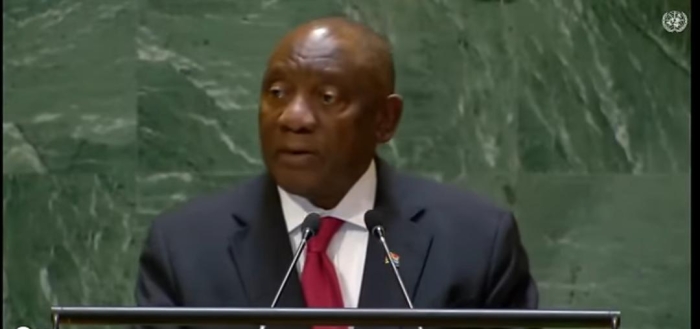During almost two hours of oral arguments on Thursday, the US Supreme Court showed doubt about a Colorado ruling that removed Donald Trump from the state's primary ballot. It is likely to decide that Trump's eligibility to run for president is not restricted by the Constitution. The issue puts the court in the middle of a contentious election and is arguably the most significant legal disagreement to reach the court this century. The majority of justices expressed worry about the mayhem that would result if they gave states the authority to determine whether to remove candidates from the ballot, including several of the court's liberal members. What actions do you take in response to the obvious and significant ramifications of your position?

Chief Justice John Roberts questioned Colorado voter attorney Jason Murray, "If Colorado's position is upheld, surely there will be disqualification proceedings on the other side and some of those will succeed." "I anticipate that a significant portion of states will declare that the Democratic nominee is ineligible, while others will declare the Republican candidate ineligible. A small number of states will ultimately determine the outcome of the presidential election. That's an intimidating outcome, Roberts continued. Two of the court's liberal justices, Elena Kagan and Ketanji Brown Jackson, repeated Roberts' line of inquiry.
Kagan told Murray that although the constitution gives states a great deal of jurisdiction, there are some national issues for which states are not "responsible of authority." She questioned, "What business does a state have determining who other people can vote for as president? The case, Donald J. Trump v. Norma Anderson et al., started when six Colorado voters sued last year, claiming that Trump was not qualified to run for president due to a seldom utilized 14th Amendment clause. According to the clause, any official or member of Congress who swears allegiance to the US Constitution and then starts an insurrection is unable to continue in their position. The prohibition may only be lifted by a two-thirds majority vote.
Judge Sarah Wallace's decision, which is almost guaranteed to be challenged, dismisses a motion by a group of Colorado voters to remove Trump from office based on a seldom applied US constitutional provision that prohibits politicians who have participated in "insurrection" from holding federal office.
The judge determined that Trump could not be disqualified under the amendment since he was president and not "an officer of the United States." Trump, who is facing other similar challenges to his election, sees the ruling as a triumph. The decision is "another nail in the coffin of the un-American ballot challenges," according to a Trump spokeswoman on Friday.
Steven Cheung, the spokesperson, stated in a statement that "American voters have a Constitutional right to vote for the candidate of their choosing, with President Donald J. Trump leading by massive numbers." Trump's "conduct and words were the factual cause of and a substantial contributing factor" to the attack on the Capitol, the court decided despite this. Trump "engaged in an insurrection on Jan. 6, 2021, through incitement," according to her findings.
The Colorado case was the first to go to trial and was seen as a test case for the larger disqualification campaign. It was launched by a group of voters supported by Citizens for Responsibility and Ethics in Washington (Crew). According to Noah Bookbinder, president of Crew, the organization will appeal the decision. Bookbinder released a statement saying, "The court's decision affirms what our clients alleged in this lawsuit: that Donald Trump engaged in insurrection based on his role on January 6."
Voter advocacy attorneys contended that after losing the 2020 presidential election, Trump instigated an uprising by disseminating fictitious allegations of massive voter fraud, calling his followers to a rally in Washington, D.C., and then pushing them to march to the US Capitol, where Congress was convening to validate the election results. Then, in an abortive attempt to block the certification, thousands of Trump supporters stormed the Capitol, attacking law enforcement and sending senators fleeing for their lives.
Trump's attorneys argued that the former president's comments before the riot were protected by his right to free expression and that he had no connection to the far-right extremist organizations that were heavily involved in the attack. Only the Colorado Republican presidential primary and general election are covered by the judgment. Nonpartisan political analysts have given the state a safe Democratic rating for the general election.
The ruling is the most recent blow to the attempt to remove Trump from office. Although attempts to remove him from the Republican primary ballot have been dismissed by courts in Minnesota and Michigan, they have not yet decided his eligibility for the general election in November 2024. The Colorado ruling may be challenged before the state supreme court and, ultimately, the US supreme court, which has three Trump appointees in its 6-3 conservative majority.













